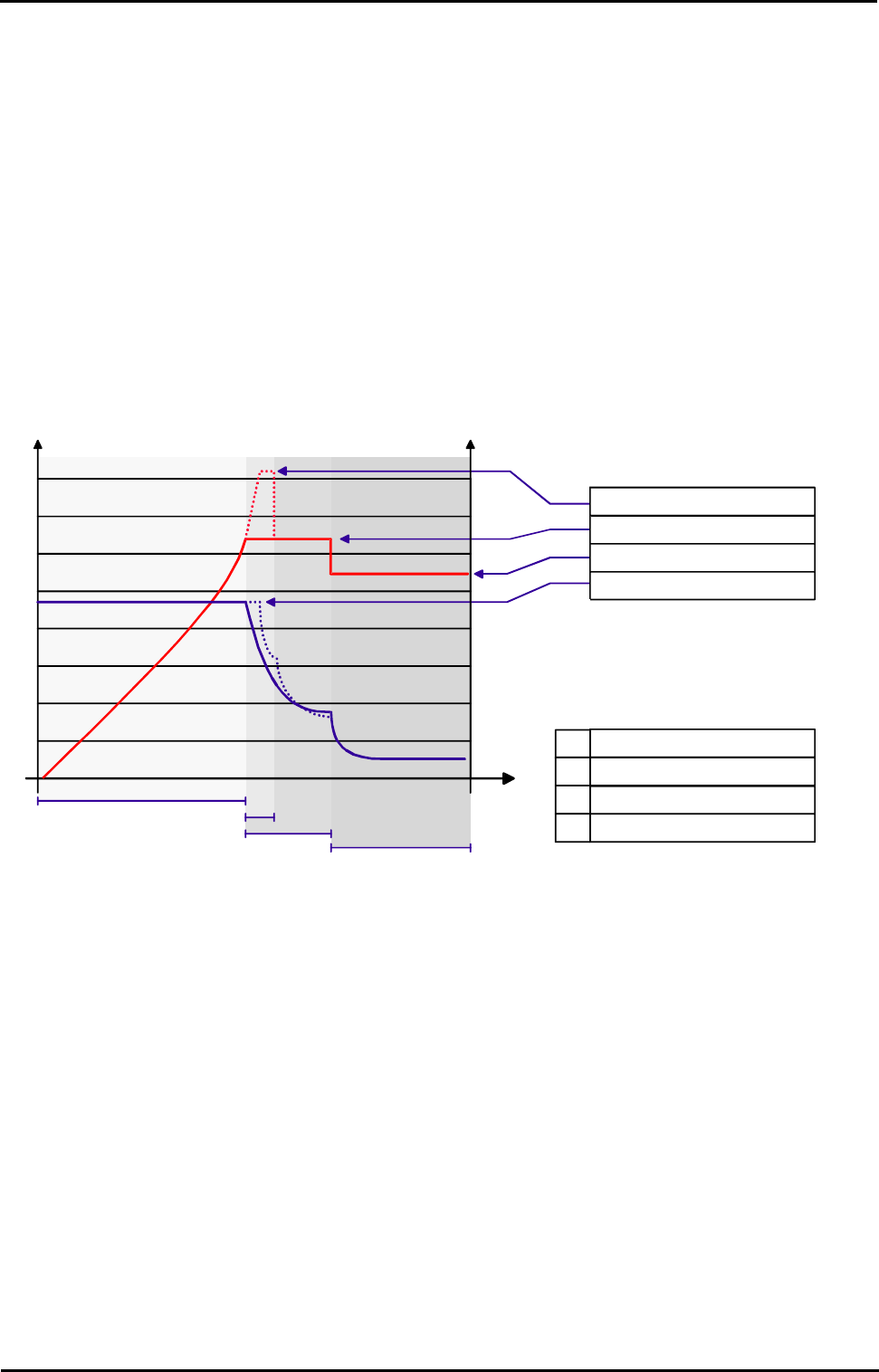
STUDER INNOTEC HP-COMPACT
User manual HP-COMPACT V3.0 E 15
4.6 The battery charger
4.6.1 Cycle of charge
The full automatic HP-COMPACT Battery Charger is adjusted at the factory so that most
lead-acid and lead-gel batteries can be charged to the maximum. As soon as the minimum
alternating voltage for the AC IN set on the Turning Knob 23 is available at the input (LED
1 AC IN is lit), the Battery Charger is switched on automatically (LED 2 CHARGER is lit).
The battery is fully automatically charged matching to the charge level, the adjusted volt-
age levels and the charge current. Thanks to the built-in Float Charge System, the batter-
ies can be left connected for unlimited time with the Battery Charger switched on.
During the charging phase the appliances at the outlet AC OUT are continually supplied
with power (LED 8 AC OUT is lit).
The charger functions are shown in the following diagram:
4.6.2 Equalization charging
Before you program the HP-COMPACT for Equalization-charge you must check with your
supplier that the batteries are suitable for this process.
Equalization is recommended for the lead-acid batteries in order to mix well the electrolyte
fluid and to clean the lead plates.
Equalization mode should never be used when using Gel-Batteries
If the HP-COMPACT is operating with a lead-acid battery, which is suitable for equali-
zation, the slide switch „Equalize“ which is on the cable connection side, must be placed in
the ON position. In this setting, every 25 charge cycles an equalization is carried out for 20
minutes (factory setting). During such a charge cycle the LED 14 is lit and during equaliz-
ing it is blinking. Charge cycle with equalization can be started independently from the ac-
tual program. For this purpose the slide switch must be slid from “OFF” to the “ON” posi-
tion. The LED 14 will light up. If the periodic equalization is not required, slide switch must
be slid back to the „OFF“ position after the completion of the manual cycle.
The equalizing voltage can be changed. How to proceed is explained in chap. 5.3.
Batteries not designed for equalize should never been charged this way.
CAUTION: During the equalization process, the batteries produce a lot more gas.
2.00
2.33
2.50
[V/cell]
2.17
A
B
C
D
30
90
60
[A]
A
B
C
D
t
Equalizing V
Absorption V
Floating V
Charge A
Charge time with set current
Equalizing time
Absorption time
Floating time


















